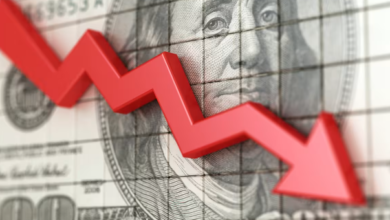
U.S. equity funds have seen significant outflows for the second consecutive week, as investors exercise caution in anticipation of economic data that may influence the Federal Reserve’s interest rate decisions. During the week leading up to December 6, 2023, investors withdrew a net total of $577 million from U.S. equity funds, a figure notably lower than the $3.26 billion withdrawn in the previous week.
The major factors influencing these outflows include concerns about the Federal Reserve’s policy tightening, with economic data pointing to persistent inflation. This trend has led to the largest weekly outflow from U.S. equity funds in eight weeks, totaling $12.9 billion, according to Refinitiv Lipper data.
Investor behavior indicates a shift towards caution, with many turning their focus to money market funds, which saw an inflow of approximately $54.58 billion, marking the largest weekly influx in eight weeks. This risk-averse attitude is evident in the outflows from large- and mid-cap equity funds, which amounted to $6.27 billion and $267 million, respectively. Small cap funds also experienced outflows, breaking a four-week streak of net buying.
Despite these outflows, certain sectors within U.S. equity funds still attracted investments. Financials, real estate, and communication services sectors saw inflows of $1.32 billion, $884 million, and $550 million, respectively. On the other hand, healthcare, technology, and utilities sectors faced net selling.
In contrast, U.S. bond funds witnessed inflows totaling $2.79 billion after a period of net selling. This included substantial purchases in U.S. short/intermediate government and treasury funds, as well as general domestic taxable fixed-income funds.
These developments suggest that investors are re-evaluating their positions in light of current and anticipated economic conditions, particularly the potential impact of the Federal Reserve’s policies on the market.





